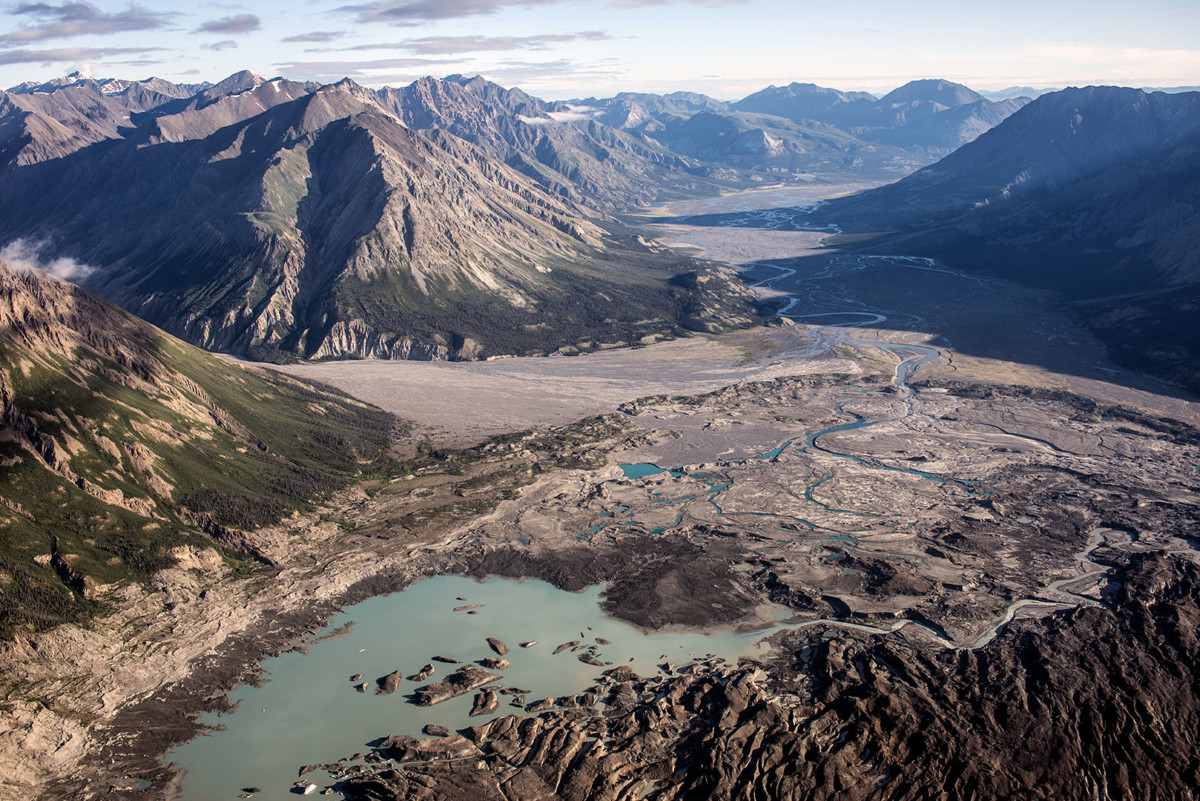A recent University of Alberta-led project, the 2018 State of the Mountains Report, has sounded the alarm bell of how the rapid loss of glacial coverage in Canada’s mountains is causing rivers to disappear.
One of the examples cited in the report is how the Slims River (Ä’äy Chù) experienced a “Piracy Event” in southwestern Yukon. During the spring melt of 2016, the Slims River, one of the primary water sources of Kluane Lake (Lhù’ààn Mǟn), dried up after the Kaskawulsh Glacier receded so much that its dwindling meltwaters started to flow in a completely different direction. Near the end of that summer, Kluane Lake was a full meter lower than its previous record low level.
“This is one stark example of a very big drainage system that utterly and permanently reorganized itself in a single season,” University of Alberta mountain historian Zac Robinson told Phys.Org. “Kluane Lake is a massive lake that isn’t being fed any longer and is seeing its levels dropping. What does that do to the ecosystem and the communities on that lake that depend on that water?”
Given that more than one-sixth of the entire global population lives in basins of glacier-fed rivers and depends heavily upon them for water for drinking and irrigation, this report is in effect sounding a global alarm bell.
Change Like Nothing That Has Happened “in the Geological Past”
Mountain glaciers are vanishing so fast due to human-caused climate disruption that it isn’t just scientists in Canada who are sounding the alarm.
“The rate of change that we see in the moment, recorded most directly and visibly by mountain glaciers, is way, way, way faster than it was at the end of the ice age,” Joerg Schaefer of Columbia University’s Lamont-Doherty Earth Observatory told Earth Institute’s State of the Planet. “What we have seen over the last 150 years, all over the planet, is that these mountain glaciers record a retreat corresponding to 1˚ to 1.5˚C warming over 150 years, with the biggest part of that retreat happening over the last decade. The speed with which these glaciers are retreating has exponentially speeded up … and if you compare the rate of change, nothing ever happened like that in the geological past.”
The Intergovernmental Panel on Climate Change has estimated that glaciers around the world (not including Antarctica and Greenland) could shrink up to 85 percent if the planet warms much more.
Already, 82 percent of all the glaciers in Western China have shrunk, and Glacier National Park in Montana, which used to have 150 glaciers in 1850, today has only 25, and those are on their way out as well.
Glaciologists have already predicted that the Rocky Mountains in both the US and Canada will lose a staggering 80 percent of all their glaciated terrain over just the next 50 years.
Scientists are alarmed by both the worsening trend of glacial loss, as well as its resulting impact on fundamental water sources for ecological systems and humans alike.
“The stored legacy of water in glaciers is something we’ve depended on to feed the big mountain rivers that spread out across the prairies or the salmon rivers on the West Coast or feed the Arctic Ocean,” mountain ecology researcher David Hik told Phys.Org. “That’s going to change.




Geen opmerkingen:
Een reactie posten